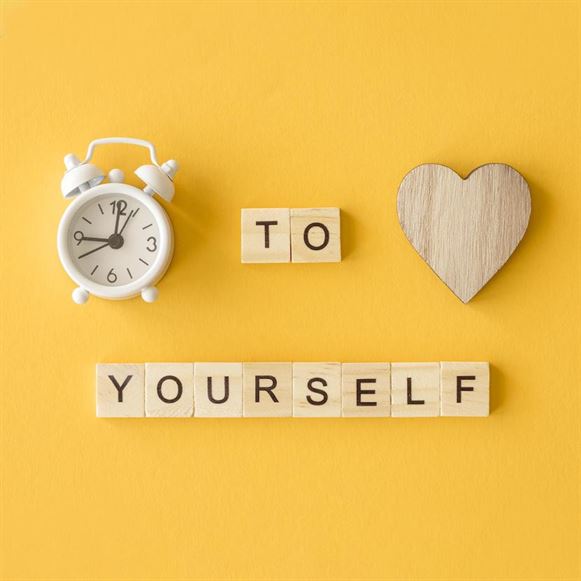
Autopilot Mode: When Life Moves Without You

Autopilot Mode: When Life Moves Without You
Have you ever felt like you're just going through the motions? Days blur into weeks, tasks get checked off like items on a grocery list, and you barely register the scenery passing by. Auto-pilot mode, a state in which one goes through daily routines without active engagement or awareness, can be a subtle yet pervasive phenomenon. As life's demands increase, individuals may find themselves coasting through the motions, losing touch with their true desires and goals. In this article, we'll delve into the concept of auto-pilot mode, explore its signs, identify potential causes, and discuss strategies to regain control and purpose.
Defining Auto-Pilot Mode:
Imagine a plane on autopilot. It efficiently follows its pre-programmed course, adjusting for minor turbulence but generally coasting without active piloting. That's akin to how we get stuck in our autopilot mode. We rely on ingrained routines, habits, and subconscious decision-making to navigate daily life. While this can be efficient in the short term, it disconnects us from the present moment and can lead to a feeling of stagnation and disengagement.
Auto-pilot mode is a mental state where individuals navigate their daily lives mechanically, often without conscious thought or deliberate decision-making. Routines and habits take over, leaving little room for introspection or intentional action. While routine can be comforting, being stuck in auto-pilot mode may lead to a sense of detachment from personal goals and a diminished quality of life.
Signs to Look Out For:
1. Lack of Passion: A diminished sense of enthusiasm or passion for once enjoyable activities can be a sign of auto-pilot mode.
2. Mindless Routine: Going through daily tasks without actively thinking about them can indicate a reliance on automatic behaviours.
3. Neglecting Goals: If long-term goals are placed on the back burner or forgotten altogether, it may be a sign of drifting into auto-pilot mode.
4. Procrastination: Constantly delaying important tasks may suggest a lack of motivation and engagement with life.
Causes of Auto-Pilot Mode:
Life can be overwhelming, and autopilot offers a temporary escape. It allows us to function on autopilot when faced with stress, anxiety, or boredom. However, prolonged autopilot can become a coping mechanism, preventing us from confronting deeper issues and hindering personal growth.
1. Overwhelm: The experience of excessive stress or overwhelming responsibility can push individuals into a survival mode, where they may simply go through the motions to cope.
2. Fear of Change: The fear of uncertainty or failure can lead individuals to stick to familiar routines, even if they are unfulfilling.
3. Lack of Mindfulness: Failure to cultivate mindfulness and self-awareness may allow autopilot mode to become a default setting.
4. Mindlessness: The act of going through tasks on autopilot, without registering the details or one's thoughts and feelings.
5. Emotional Numbness: The absence of enthusiasm, joy or even sadness in one's emotions.
6. Routine Obsession: A rigidly structured day, with little deviation from the usual pattern.
7. Decision Fatigue: The experience of feeling drained and overwhelmed by even small choices.
8. Sense of Disconnection: The feeling of detachment from oneself, loved ones, and the world around oneself.
Strategies to Regain Control:
The good news is, that you can break free from autopilot and reclaim control of your life.
Here are some strategies to get you started:
1. Self-Reflection: It's crucial to regularly reflect on your values, passions, and goals to ensure they align with your daily activities.
2. Mindfulness Practices: Incorporating mindfulness techniques like meditation or deep breathing can help you foster awareness in the present moment.
3. Set Meaningful Goals: It's important to establish clear and realistic goals that align with your values, providing you with a sense of purpose and direction.
4. Embrace Change: Confront your fear of change by embracing new experiences and stepping out of your comfort zone.
5. Create a Daily Routine with Purpose: Try to structure your daily routines to include activities that bring you joy, and fulfillment, and contribute to your personal growth.
Tips for implementing these practices:
- Practice mindfulness by paying attention to your thoughts, feelings, and bodily sensations in the present moment. Meditation and breathwork can be helpful tools.
- Embrace novelty by stepping outside your comfort zone and trying new things, even if it's just taking a different route to work.
- Challenge your routines by breaking up your day with mini-adventures, like having lunch in a new park or taking a spontaneous walk.
- Reconnect with your values by reflecting on what's important to you and making conscious choices that align with your values.
- Prioritize self-care by getting enough sleep, eating nourishing food, and engaging in activities that bring you joy.
Conclusion:
Breaking free from auto-pilot mode is a journey of self-discovery and intentional living. Recognizing the signs, understanding the causes, and implementing strategies to regain control can pave the way for a more fulfilling and purposeful life. By stepping off autopilot and actively engaging with the world around you, you can cultivate a life filled with meaning, purpose, and, most importantly, presence.
Articles
Build your awareness and get inspired with our researched articles on how you can strengthen your well-being
Popular Topics
An OTP has been sent to the email address
provided.
Please check your Inbox and Spam folders.

What Would You Like to Speak with a Specialist About?
Mental Fitness Journey starts Now!
Chearful Connects you with Top-tier Qualified Wellness specialists for the Price of a cup of Coffee!

Next Steps
- A Client Team member will reach out to you to schedule a session with the most suitable specialist.
- You will receive an email with a 10% Discount Code* for your 1st session.
- We invite you to Explore the Platform & Sign Up today! *Upto a maximum of $10 discount on a session purchased




 2260 Read
2260 Read




.jpg)
.jpg)











.jpg)






























